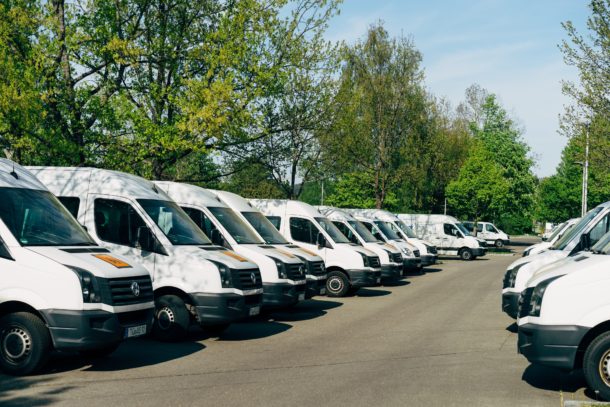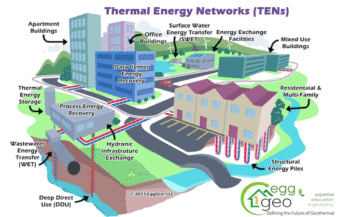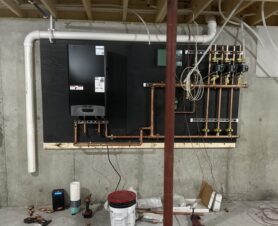“An apple a day keeps the doctor away” is a saying that everyone has heard. Many people are aware that this is an appeal for preventive care—take good care of your body by eating a balanced diet.
While many people see it from the medical lens, you should note that you should apply it even when it comes to your construction vehicles.
Your heavy construction machinery is subjected to various elements at the job site, such as dirt, grease, salt, and more. Due to this, the vehicles need some tender love and care.
One essential component of preventive maintenance is keeping the vehicles clean. Continue reading to learn why keeping your construction fleet clean matters.

When the fleet is clean, you have less downtime
Seeing the physical rewards of your labor at the end of a long day is one of the best things about operating heavy machinery. This could be any of the several tasks completed with heavy vehicles, which could be a cleared building site ready for workers to pour the foundation or ditches ready for pipes.
Naturally, your equipment displays the fruits of your labor after a long day. But the dirt you don’t see is far more prevalent than the filth you can see.
You have to keep the vehicles clean to keep them moving. For instance, the accumulation of dirt and mud on electrical outlets can easily cause short circuits, which require downtime.
Because of the nature of the business, you cannot make money when you are not working.
This means that regular cleaning of the vehicles ensures that you are working which ensures that you have more money in your pocket.
You extend the life of your vehicles
The fleet of heavy vehicles you own is a significant financial commitment. In some cases, that “fleet” might only consist of one vehicle, but even so, it costs a substantial sum of money, right?
Protecting that investment is what’s best for you. One important part of that is keeping things tidy. It’s no secret that vehicles with regular maintenance last longer.
Because you are aware of this, you do routine preventative maintenance and fluid checks.
The life of your investment is shortened when your vehicles need to work harder, which has an adverse effect. By including power washing in your preventative maintenance program, you can get rid of the accumulation of debris and grease that impedes smooth functioning.
Additionally, having your vehicle power washed at Spark enhances its aesthetic appeal. This is because the same accumulation of dirt, debris, and grease that damages the mechanics of your heavy machinery also degrades the paint job. By removing the dirt, you have a beautiful-looking vehicle that you can be proud of.
You are proud of your ownership
Talking about pride, your company conveys professionalism to the current and potential clients when you have a well-kept fleet of heavy vehicles.
When the vehicles are driving around with your company’s logo and name, you’re putting your firm, your staff, and the job you do under the spotlight.
Think about how you come across to customers, the general public, other contractors, and even on the job site. While these people might not notice that your equipment is clean, they will undoubtedly see mud, grime, and grease on the equipment.
As you can tell, this doesn’t give a good image.
A clean vehicle is safer to work with
An unmaintained vehicle puts your crew’s safety at risk. The buildup of contaminants causes mechanical problems as well as troubles with your hydraulic and electrical systems.
Your whole team is at risk from defective, broken vehicles, including the operator and anybody else working close to it.
Having your vehicle cleaned removes all debris that could otherwise harm your maintenance staff, making it safer for your technicians to work.
You also have peace of mind working with a clean vehicle as you know that it’s in top working condition.
You get to comply with the regulations
To maintain compliance standards set by regulatory bodies like OSHA (Occupational Safety & Health Administration), the construction industry is subject to restrictions addressing the cleanliness of its tools and vehicles. Maintaining your vehicle’s compliance with these rules is made easier with routine cleaning.
When you are compliant you avoid fines, penalties, citations, and other legal repercussions that could harm a company’s operations, profitability, and reputation.
You ensure your vehicles have better resale value
Regular cleaning will raise the resale value of your construction vehicle and attract more customers if you intend to sell it in the future.
The reason for this is that cleanliness adds value in the eyes of a buyer since it shows that the vehicle has been well-maintained throughout its life.
You should note that buyers are more willing to pay top cash for well-maintained machinery free from excessive wear and tear or neglect-related damage. This means that when your vehicle is properly maintained, it’s bound to fetch you more money.
When you sell your vehicle at a higher price it means that you don’t incur a huge inflation.
Best practices when cleaning construction vehicles
For you to get the best results, you have to clean the construction vehicles properly. Some of the tips to consider include:
Pressure wash the vehicles: The ideal tool for getting rid of filth, grease, and grime is a pressure washer. The concentrated water streams are forced into hard-to-reach areas, such as seams and hinges, by pressure washers, leaving your vehicle in perfect shape.
Clean your vehicles in areas with wash pads and racks: Wash racks and closed-loop wash systems collect and repurpose surplus water within a confined system, returning it to usable gray water for continuous usage.
To stop dirty water from leaking into the surrounding area, ensure that the area where you are washing your vehicle has wash pads that are enclosed and self-contained. This releases dirt, grease, and other impurities, allowing them to gather inside sump pumps.
As a consequence, the dirt and grime do not get into the water reservoirs and ruin the environment.




Join the conversation: